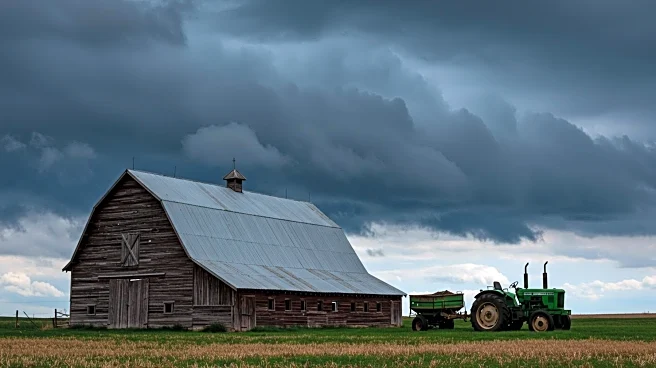What is the story about?
What's Happening?
Farmers in the U.S. Midwest are experiencing significant challenges due to the combined effects of climate change and tariffs imposed by President Trump. Brian Harbage, a seventh-generation farmer in Ohio, reports that unpredictable weather patterns have severely impacted crop yields, with droughts and excessive rainfall causing disease and pest issues. Additionally, tariffs have reduced international demand for U.S. soybeans and corn, leading to financial strain. Despite these challenges, many farmers continue to support President Trump, although his policies have contributed to their economic difficulties.
Why It's Important?
The situation highlights the vulnerability of the U.S. agricultural sector to both environmental and political factors. The tariffs have led to a decline in exports, particularly to China, which was a major market for U.S. soybeans. This has resulted in lower prices and increased financial pressure on farmers. The climate crisis further exacerbates these issues by creating unpredictable growing conditions. The combination of these factors threatens the stability of the farm economy, which is crucial for rural communities and the broader U.S. economy.
What's Next?
Farmers are looking for solutions to mitigate these challenges, including potential policy changes that could improve export conditions. The Trump administration has announced subsidies to support farmers, but there is criticism regarding the distribution of these funds. As the harvest season approaches, farmers are concerned about the lack of commitments from China to purchase U.S. soybeans, which could further impact their financial situation. The ongoing climate crisis also requires adaptation strategies to ensure sustainable farming practices.
Beyond the Headlines
The broader implications of these challenges include potential shifts in political support among rural voters, who have traditionally been a strong base for President Trump. The economic strain on farmers could lead to increased advocacy for policy changes that address both trade and environmental issues. Additionally, the mental health impact on farmers, who face high stress levels and financial uncertainty, is a growing concern that requires attention.
















